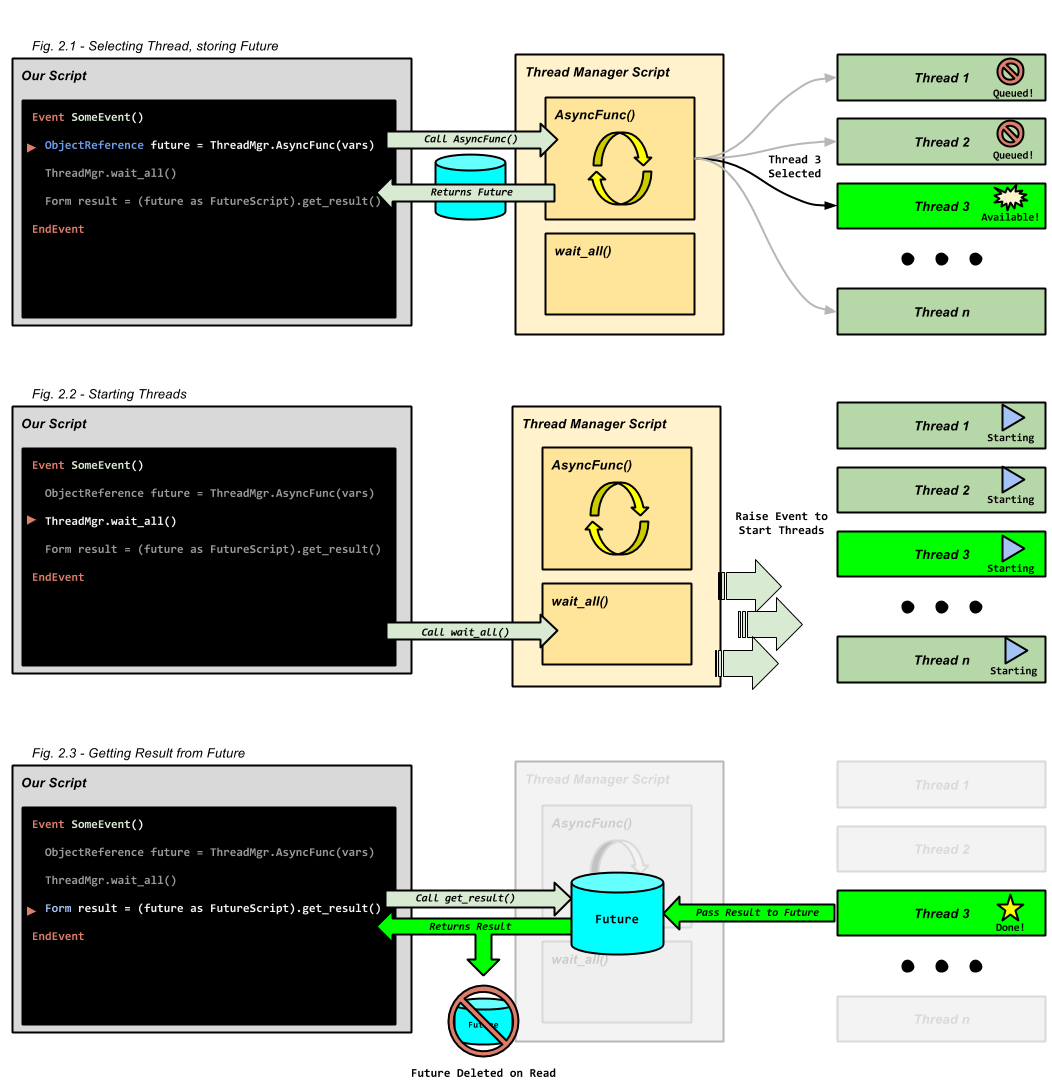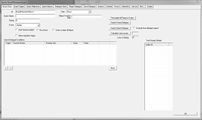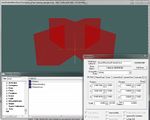Creating Multithreaded Skyrim Mods Part 2 - Futures
This tutorial picks up where our introduction left off. We will be implementing a multithreaded solution to our example problem (a Conjuration mod that spawns many actors) using the Futures pattern.
Pattern Overview
Here is a diagram of how the Futures pattern works.
Above, you can see that the sequence is:
- Call a function on our Thread Manager.
- The Thread Manager delegates the work to an available thread.
- The Thread Manager returns a Future to the caller, who stores it as an ObjectReference.
- The calling script calls
get_result()on the Future.- If the thread has finished working, the result has been passed to the Future. The Future returns the result to the caller.
- If the thread has NOT finished working, the caller must wait until the result has been passed to the Future. When it is available, the Future returns it to the caller.
- After the result has been read, the Future is deleted.
That is the Futures pattern in a nutshell. Now, we will implement the various parts of this pattern, and put it all together at the end.
Creation Kit
- Create Quest: Begin by opening the Creation Kit and creating a new Quest. We'll call our quest GuardPlacementQuest. Click OK to save and close the quest, then open it again (to prevent the CK from crashing). Make sure that "Start Game Enabled", "Run Once", "Warn on Alias Failure" and "Allow repeated stages" are unchecked. Click OK to close it again.
- Create Future (Activator): Next, we want to create an object we will need later, called a
Future. We'll get into what these do later. Open the Activator tree in the Creation Kit Object Window, and find 'xMarkerActivator'. Right click and Duplicate this object. Double-click the duplicate and rename it's Editor ID to identify it later; we'll call ours GuardPlacementFutureActivator. - Create Anchor (Object Reference): We now want to create a "Future Anchor". This is an XMarker object reference that we will be placing in a far-off, unused cell. You can create your own blank cell, but AAADeleteWhenDoneTestJeremy is also a good candidate. Wherever you decide to place it, drag an XMarker Static from the Object Window of the Creation Kit into the Render Window and name the reference. We'll name ours GuardPlacementFutureAnchor. We'll use this to
PlaceAtMe()Futures on this object later on.
Threads
The thread is what will perform the work we want to perform in parallel. Just like the PlaceAtMe() needed to spawn our guards, we expect the result of our Thread to be an ObjectReference.
First, let's define a base Thread "class", called GuardPlacementThread.
scriptname GuardPlacementThread extends Quest hidden
;Thread control variables
ObjectReference future
int thread_id = -1
bool thread_queued = false
;Variables you need to get things done go here
ActorBase theGuard
Static theMarker
;Thread queuing and set-up
ObjectReference function get_async(Activator akFuture, ObjectReference akFutureAnchor, ActorBase akGuard, Static akXMarker)
;Let the Thread Manager know that this thread is busy
thread_queued = true
;If our thread doesn't have a unique ID, abort. The Thread Manager should assign one.
if thread_id == -1
return None
endif
;Store our passed-in parameters to member variables
theGuard = akGuard
theMarker = akXMarker
;Register for the event that will start thisthread
RegisterForModEvent("MyMod_OnGuardPlacement", "OnGuardPlacement")
;Raise the event that will start this thread
RaiseEvent_OnGuardPlacement(thread_id)
;Create the Future that will contain our result
future = akFutureAnchor.PlaceAtMe(akFuture)
return future
endFunction
;Create the ModEvent that will start this thread
function RaiseEvent_OnGuardPlacement(int iThreadId)
int handle = ModEvent.Create("MyMod_OnGuardPlacement")
if handle
ModEvent.PushInt(handle, iThreadId)
ModEvent.Send(handle)
else
;pass
endif
endFunction
;Allows the Thread Manager to determine if this thread is available
bool function busy()
return thread_queued
endFunction
;Allows the Thread Manager to set this thread's ID
function set_id(int aId)
thread_id = aId
endFunction
;For Thread Manager troubleshooting.
bool function has_future(ObjectReference akFuture)
if akFuture == future
return true
else
return false
endif
endFunction
;For Thread Manager troubleshooting.
bool function force_unlock()
clear_thread_vars()
thread_queued = false
return true
endFunction
;The actual set of code we want to multithread.
Event OnGuardPlacement(int aiThreadId)
if thread_queued && aiThreadId == thread_id
;OK, let's get some work done!
ObjectReference tempMarker = Game.GetPlayer().PlaceAtMe(theMarker) ;We could have passed PlayerRef in as a get_async() parameter, too
MoveGuardMarkerNearPlayer(tempMarker)
ObjectReference result = tempMarker.PlaceAtMe(theGuard)
tempMarker.Disable()
tempMarker.Delete()
;OK, we're done - let's pass the result back to the future
;UNCOMMENT THIS after compiling GuardPlacementFuture
;(future as GuardPlacementFuture).result = result
;Set all variables back to default
clear_thread_vars()
;Make the thread available to the Thread Manager again
thread_queued = false
endif
endEvent
;Another function that does things we want to multithread.
function MoveGuardMarkerNearPlayer(ObjectReference akMarker)
;Expensive SetPosition, GetPosition, FindNearestRef, etc calls here (illustration only)
endFunction
function clear_thread_vars()
;Reset all thread variables to default state
theGuard = None
theMarker = None
endFunction
As you can see, our thread does a few important things:
- It has a
get_async()function, which takes in all of the parameters necessary to do the work we need to perform.
- It defines and registers for an
OnGuardPlacementEvent, which is a custom Mod Event that does the work.
get_async()creates aFuturewhich will eventually make its way back to the script that called our Thread Manager function.
Event OnGuardPlacement()will fire if the event is raised, but only if the thread has been 'queued' and the ThreadId of the Event matches ours.
- The thread returns its results back to the Future it created.
- It clears all of the member variables using
clear_thread_vars().
- We set
thread_queuedback toFalse, which tells the Thread Manager that this thread is available to be used again.
Now that we've set up our base Thread script, we will create 10 child scripts that will extend this one. They will each contain only one line, the scriptname definition.
;GuardPlacementThread01.psc
scriptname GuardPlacementThread01 extends GuardPlacementThread
;GuardPlacementThread02.psc
scriptname GuardPlacementThread02 extends GuardPlacementThread
...
;GuardPlacementThread09.psc
scriptname GuardPlacementThread09 extends GuardPlacementThread
;GuardPlacementThread10.psc
scriptname GuardPlacementThread10 extends GuardPlacementThread
Once all of your Thread child scripts are saved and compiled, attach the 10 child scripts to your Quest.
"But wait," you ask. "We need to place 20 guards, but we only have 10 threads. Won't something break?" The Thread Manager, which we'll talk about next, can handle having more work than there are threads!
Thread Manager
We will next define the Thread Manager script. This script handles delegating our work to an available thread. If a thread is not available, it waits until one is.
Since we may have many thread scripts, and it would be tedious to hook up properties we need to do our task in each and every one, define them here instead and we will pass them in as parameters to our threads. We will try to keep properties that have to be hooked up in the Creation Kit off of the threads themselves.
In the end, the function that we call in our Thread Manager will return a Future, which we can use to get our return value later.
scriptname GuardPlacementThreadManager extends Quest
Quest property GuardPlacementQuest auto
{The name of the thread management quest.}
Activator property GuardPlacementFutureActivator auto
{Our Future object.}
ObjectReference property GuardPlacementFutureAnchor auto
{Our Future Anchor object reference.}
Static property XMarker auto
{Tedious to define properties in the threads and hook up in CK over and over, so define things we need here. MoveGuardMarkerNearPlayer() needs XMarkers.}
GuardPlacementThread01 thread01
GuardPlacementThread02 thread02
;...and so on
GuardPlacementThread09 thread09
GuardPlacementThread10 thread10
int next_thread_id = 0
int function GetThreadId()
next_thread_id += 1
return next_thread_id
endFunction
Event OnInit()
;Let's cast our threads to local variables so things are less cluttered in our code
thread01 = GuardPlacementQuest as GuardPlacementThread01
thread02 = GuardPlacementQuest as GuardPlacementThread02
;...and so on
thread09 = GuardPlacementQuest as GuardPlacementThread09
thread10 = GuardPlacementQuest as GuardPlacementThread10
;Next, we need to assign a unique ID to each thread.
thread01.set_id(GetThreadId())
thread02.set_id(GetThreadId())
;...and so on
thread09.set_id(GetThreadId())
thread10.set_id(GetThreadId())
EndEvent
;The 'public-facing' function that our MagicEffect script will interact with.
ObjectReference function PlaceConjuredGuardAsync(ActorBase akGuard)
int i = 0
ObjectReference future
while !future
if !thread01.busy()
future = thread01.get_async(GuardPlacementFutureActivator, GuardPlacementFutureAnchor, akGuard, XMarker)
elseif !thread02.busy()
future = thread02.get_async(GuardPlacementFutureActivator, GuardPlacementFutureAnchor, akGuard, XMarker)
...
elseif !thread09.busy()
future = thread09.get_async(GuardPlacementFutureActivator, GuardPlacementFutureAnchor, akGuard, XMarker)
elseif !thread10.busy()
future = thread10.get_async(GuardPlacementFutureActivator, GuardPlacementFutureAnchor, akGuard, XMarker)
else
;All threads are busy; wait and try again.
Utility.wait(0.1)
i += 1
if i >= 100
debug.trace("Error: A catastrophic error has occurred. All threads have become unresponsive. Please debug this issue or notify the author.")
i = 0
;Fail by returning None. The mod needs to be fixed.
return None
endif
endif
endWhile
return future
endFunction
;A helper function that can avert permanent thread failure if something goes wrong
function TryToUnlockThread(ObjectReference akFuture)
bool success = false
if thread01.has_future(akFuture)
success = thread01.force_unlock()
elseif thread02.has_future(akFuture)
success = thread02.force_unlock()
;...and so on
elseif thread09.has_future(akFuture)
success = thread09.force_unlock()
elseif thread10.has_future(akFuture)
success = thread10.force_unlock()
endif
if !success
debug.trace("Error: A thread has encountered an error and has become unresponsive.")
else
debug.trace("Warning: An unresponsive thread was successfully unlocked.")
endif
endFunction
The PlaceConjuredGuardAsync() function handles making sure that our work gets delegated to an available thread. The function then returns a Future once an available thread is found. Nearly as soon as a thread's get_async() function is called, it begins working, while our calling MagicEffect script is free to do other things in the mean time.
Compile and attach this script to your GuardPlacementQuest. then, double-click the Thread Manager script and fill the properties. Once you've done that, your quest's script section should look something like this:
image here
Back to the Future
A Future, in parallel processing, is the representation of an asynchronous operation. It can be thought of as a placeholder in lieu of your result until your result has arrived. Like the Google App Engine version that this was inspired by, when the Future is created, it will probably not have any results yet. Your script can store a Future and later call the Future object's get_result() function. If the result has arrived, get_result() returns it; otherwise, it waits for the result to arrive, and then returns it.
Let's create our Future:
scriptname GuardPlacementFuture extends ObjectReference
Quest property GuardPlacementQuest auto
ObjectReference r
ObjectReference property result hidden
function set(ObjectReference akResult)
done = true
r = akResult
endFunction
endProperty
bool done = false
bool function done()
return done
endFunction
ObjectReference function get_result()
;Terminate the request after 10 seconds, or as soon as we have a result
int i = 0
while !done && i < 100
i += 1
utility.wait(0.1)
endWhile
RegisterForSingleUpdate(0.1)
if i >= 100
;Our thread probably encountered an error and is locked up; we need to unlock it.
(GuardPlacementQuest as GuardPlacementThreadManager).TryToUnlockThread(self as ObjectReference)
endif
return r
endFunction
Event OnUpdate()
self.Disable()
self.Delete()
endEvent
This script should be compiled and attached to the Future Activator object we created earlier. After you've attached it, make sure to fill the properties.
Quick Detour: Revisiting the Thread Script
There was a line from our thread script that was commented out, because our Future script didn't exist yet:
;(future as GuardPlacementFuture).result = resultGo back and uncomment this line and recompile the parent script. You don't need to recompile all of the children.
Tying it All Together
Now that we've created our Threads, our Thread Manager, and our Future script, we can start to put them to work. Since we aren't calling the functions we want to execute directly, we need to change how we do things slightly.
The previous execution flow was:
- Call each function, one by one, and store the results. (
PlaceAtMe(), etc)
The flow using threads now is:
- Call an Async function on our Thread Manager, and store the
Futureit returns. - Later, call the
get_results()function of theFutureto retrieve the results.
In our original ActiveMagicEffect script, we did all of our MoveGuardMarkerNearPlayer() and PlaceAtMe() calls in a row, getting a series of Actor references for our guards in return. We're going to modify that slightly to use our shiny new threaded placement system:
scriptname SummonArmy extends ActiveMagicEffect
Quest property GuardPlacementQuest auto
{We need a reference to our quest with the threads and Thread Manager defined.}
ActorBase property Guard auto
ObjectReference Guard1
ObjectReference Guard2
...
ObjectReference Guard20
Event OnEffectStart(Actor akTarget, Actor akCaster)
if akCaster == Game.GetPlayer()
;Place actors according to the player's position, taking into account walls, obstacles, etc
;Cast the Quest as our Thread Manager and store it
GuardPlacementThreadManager threadmgr = GuardPlacementQuest as GuardPlacementThreadManager
;Call PlaceConjuredGuardAsync for each Guard and store the returned Future
ObjectReference Guard1Future = threadmgr.PlaceConjuredGuardAsync(Guard)
ObjectReference Guard2Future = threadmgr.PlaceConjuredGuardAsync(Guard)
ObjectReference Guard3Future = threadmgr.PlaceConjuredGuardAsync(Guard)
;...and so on
ObjectReference Guard19Future = threadmgr.PlaceConjuredGuardAsync(Guard)
ObjectReference Guard20Future = threadmgr.PlaceConjuredGuardAsync(Guard)
;Collect the results
Guard1 = (Guard1Future as GuardPlacementFuture).get_result()
Guard2 = (Guard2Future as GuardPlacementFuture).get_result()
Guard3 = (Guard3Future as GuardPlacementFuture).get_result()
;...and so on
Guard19 = (Guard19Future as GuardPlacementFuture).get_result()
Guard20 = (Guard20Future as GuardPlacementFuture).get_result()
endif
endEvent
Event OnEffectFinish(Actor akTarget, Actor akCaster)
if akCaster == Game.GetPlayer()
Guard1.Disable()
Guard1.Delete()
;...and so on
Guard20.Disable()
Guard20.Delete()
endif
endEvent
Here, instead of doing the work in our script, we delegated the work to the Thread Manager, and stored the Futures that it returned to us. Then, we gathered the results using our Futures' get_result() function. We don't have to worry about our threads or the state of the Futures; those are freed up and cleared for us by the system.
Even though all of the threads are working in parallel and might not finish at the same time, the get_result() function will wait until a result is available before returning. We can be sure that we will get the results even if they are processed out of order. For instance, if thread 2 completed before thread 1, calling the thread 1 Future's get_result() function will pause the script until a result is available. Then the thread 2 Future's result is gathered, and so on.
Notes on Futures
- Be a good Papyrus and Skyrim citizen and read the results from your Futures as soon as you are able so that they can be disposed of. If Futures begin to pile up without being read and destroyed, save game bloat could occur.
- If you are running operations in an always-on background script that you want to multithread, and you will always have the same number of results back, it may make more sense for you to implement a static set of Future references that are never destroyed that you continue to reuse. This would prevent the churn of Futures being created and destroyed and may lend itself to faster performance. Keep in mind that this would probably result in some data loss if your Futures are not read from regularly as the new results overwrite the old ones.
- You can create as many threads as you want, but I wouldn't recommend more than 30 or so. It depends on your needs, the strain each thread places on the Papyrus VM, and how quickly you need your results.
- If you need to perform a set of actions that are not all the same, the Thread Manager might not be best for you. You may want to create different thread base scripts purpose-built for your various tasks and then call their get_async() functions directly, blocking on busy() until they're available. You can still run many different tasks concurrently this way, even if they're not the same.



